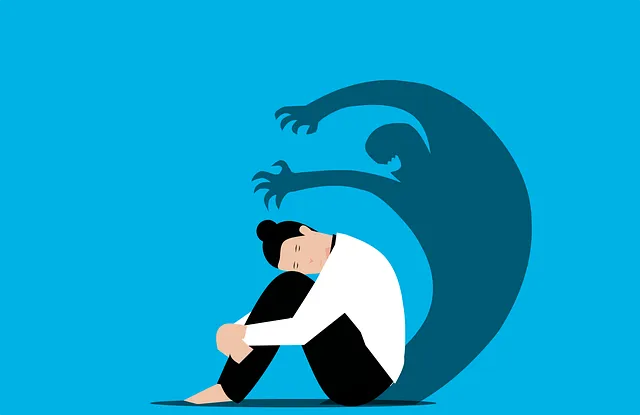Mental wellness involves emotional, psychological, and social well-being, impacting daily life. Journaling, offered by Lone Tree Kaiser mental health classes, aids self-reflection and growth by exploring thoughts and experiences, leading to improved self-esteem, stress management, and mental health. Regular journaling helps identify patterns, manage anxiety, gain clarity, and transform overall well-being. Classes suggest dedicated time, authentic writing, and diverse techniques like prompts and creative elements for effective journaling, fostering self-awareness and embracing the mind-body connection.
“Unwind and embrace self-care with our guide to mental wellness journaling, a powerful tool for navigating life’s challenges. This practice, inspired by Lone Tree Kaiser mental health classes, offers a peaceful sanctuary for reflection and growth.
By exploring the benefits of journaling, from stress reduction to improved emotional intelligence, we’ll show you how to create a personalized routine. Discover effective techniques to transform your journaling into a transformative experience, ultimately enhancing your overall mental wellness.”
- Understanding Mental Wellness and Its Benefits
- The Power of Journaling for Self-Reflection
- Creating a Journaling Routine for Optimal Mental Health
- Effective Techniques to Enhance Your Journaling Practice
Understanding Mental Wellness and Its Benefits

Mental wellness refers to our emotional, psychological, and social well-being. It impacts how we think, feel, and act in various aspects of life, affecting our ability to cope with stress, make choices, and relate to others. Promoting mental wellness involves recognizing and nurturing our unique minds, fostering healthy habits, and seeking support when needed.
Engaging in regular mental wellness journaling can be a powerful tool for self-reflection and growth. It encourages individuals to explore their thoughts, emotions, and experiences, leading to increased self-awareness. This practice has numerous benefits, including enhanced self-esteem improvement, better stress management, and improved overall mental health. Lone Tree Kaiser mental health classes often emphasize the value of journaling as a means to support individuals in navigating their mental health journeys and cultivating resilience. Additionally, for healthcare providers, incorporating practices like cultural competency training and risk assessment for mental health professionals can greatly contribute to delivering compassionate and effective care.
The Power of Journaling for Self-Reflection

Journaling is a powerful tool for self-reflection and personal growth, especially when it comes to mental wellness. Taking time to write down your thoughts and feelings can help you gain valuable insights into your emotions, behaviors, and triggers. This practice allows you to step back from the chaos of daily life and connect with yourself on a deeper level. At Lone Tree Kaiser mental health classes, we often emphasize the benefits of journaling as a coping skill development technique.
By jotting down your experiences, you can identify patterns in your thoughts and behaviors, which is crucial for managing conditions like anxiety and stress. It provides an outlet to process emotions, offering a sense of clarity and control over one’s mental state. Through regular reflection, individuals can learn effective stress reduction methods and even discover creative ways to alleviate anxiety relief, transforming their overall well-being.
Creating a Journaling Routine for Optimal Mental Health

Creating a consistent journaling routine can be a powerful tool for enhancing mental wellness, as recommended by Lone Tree Kaiser mental health classes. Dedicating just a few minutes each day to write down your thoughts and experiences allows for introspection and self-reflection—essential components of optimal mental health. Start by setting a specific time and place for journaling; this ritualistic approach helps establish a routine. Whether it’s upon waking or before bed, find a moment when you’re most receptive and less likely to be interrupted.
Incorporate various writing exercises that cater to your needs. Some days, you might focus on expressing gratitude for the positives in your life. On others, explore mindfulness practices by describing your senses or the current atmosphere around you. The key is to embrace authenticity and let thoughts flow freely without judgment. Over time, journaling becomes an empathetic companion, offering valuable insights into your emotional landscape and helping to prevent issues like depression. It’s about cultivating a practice that supports your mental well-being and embraces the mind-body connection.
Effective Techniques to Enhance Your Journaling Practice

To enhance your mental wellness journaling practice, incorporate diverse techniques that cater to different aspects of self-improvement. Writing prompts can be a powerful tool; consider using them to explore your thoughts and emotions. Start with simple questions like “What made me happy today?” or “What am I grateful for?” and expand from there. Lone Tree Kaiser mental health classes often recommend these prompts as they encourage reflection, fostering both self-awareness exercises and an improved sense of well-being.
Additionally, integrating creative elements like doodling, coloring, or sketching into your journaling routine can serve as effective stress reduction methods. These activities allow for a break from the traditional text-only format, making the process more engaging. Moreover, reflecting on achievements, no matter how small, through journaling can boost self-esteem improvement by providing a tangible record of personal growth. Remember, consistency is key; set aside dedicated time each day or week to ensure your journaling practice remains an integral part of your mental wellness routine.
Mental wellness journaling can be a transformative tool for anyone seeking to improve their mental health. By integrating practices discussed in this article, like those offered by Lone Tree Kaiser mental health classes, you can create a personalized routine that fosters self-reflection and enhances overall well-being. Remember, consistency is key; make journaling a regular part of your day to observe significant improvements over time.






